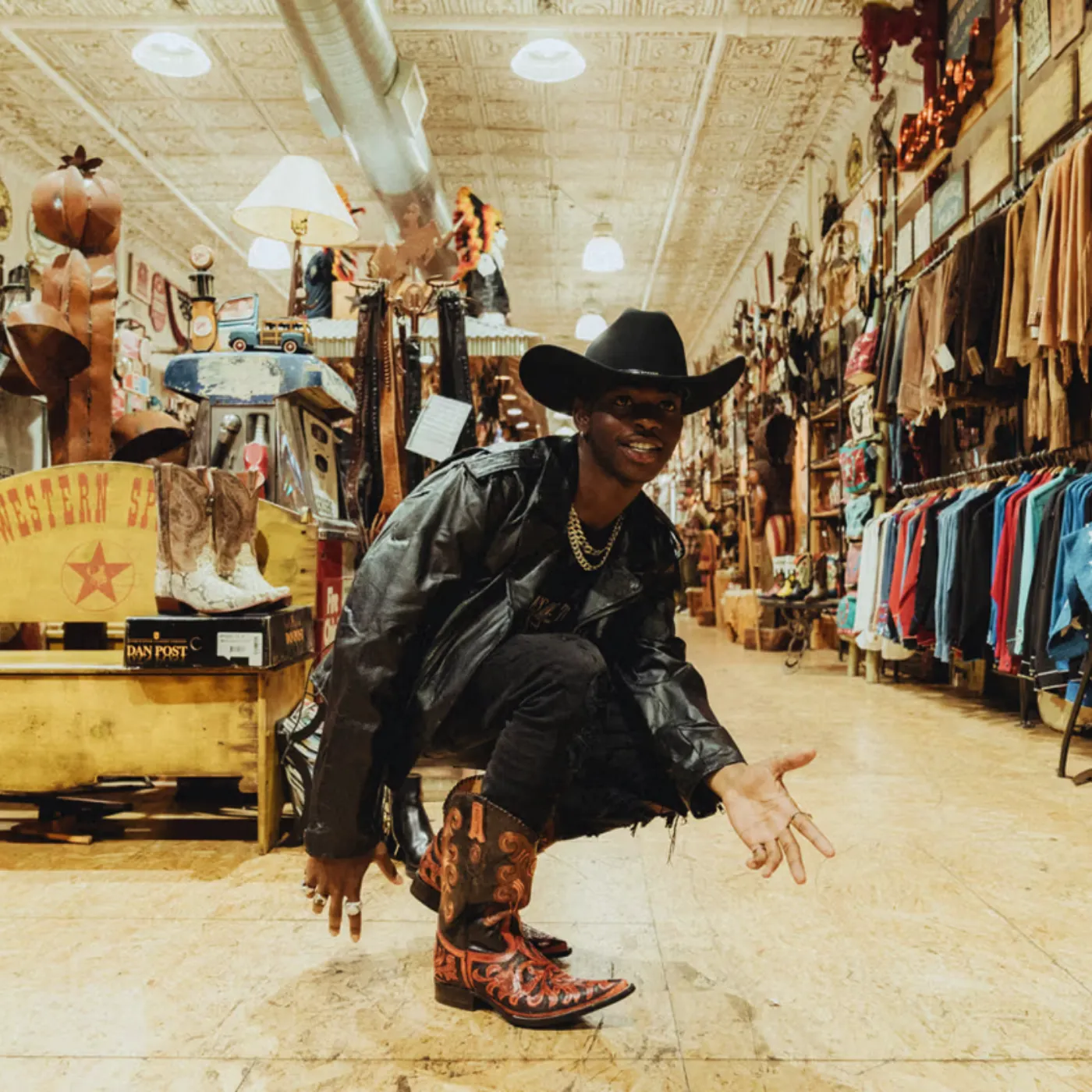

Lil Nas X’s Childhood Changes How You Hear His Music
Behind the glitter, the viral fame, and the record-breaking hits, there’s a story that’s rarely told—a childhood filled with silence, survival, and scars no spotlight could erase. Lil Nas X didn’t just break into music; he clawed his way out of a world that tried to keep him invisible.

The Quiet Start No One Talks About
Long before the name “Lil Nas X” meant anything to the world, he was just Montero—a quiet kid with a storm inside and a lot of locked doors around him. Raised in the outskirts of Atlanta, his early years weren’t filled with toys and warm family dinners. They were marked by instability, loneliness, and moments that felt more like survival than childhood.
People saw a shy kid. What they didn’t see was a boy learning to read people’s moods like weather patterns. The pressure of keeping things calm, keeping quiet, and staying out of the way became second nature.
He wasn’t “troubled”—he was just growing up in a place where trouble found you before opportunity ever could.
A House Full of Silence
After his parents divorced, Montero bounced between homes. For many kids, that’s tough. But for him, it was like learning to live in two different worlds—neither of them safe, neither of them home.
He didn’t speak much, not because he had nothing to say, but because he learned early that words could backfire. In households stretched thin by pressure and pain, quiet becomes a skill. And when you’re always quiet, people forget to ask what’s really going on.
Music didn’t save him at that point. Escaping into his mind did.
Bullied, But Not Broken
By the time he hit middle school, things got worse. He wasn’t just ignored—he was targeted. Teachers missed it. Adults brushed it off. But Montero knew what it felt like to be laughed at for just existing.
Being “different” without a safe space to explain it? That’s a recipe for a storm brewing inside.
And that storm built pressure day by day. But even then, he didn’t explode. He created.
He wrote. He imagined. He built whole worlds inside his head—worlds where he wasn’t the punchline.
The Internet Became His First Escape Plan
By high school, Montero found the one place where he could express himself without getting shut down: the internet. Memes. Twitter. Humor. They weren’t just fun; they were his first tools of power.
He was clever, faster than the feed, and knew how to make people stop scrolling. He didn’t want pity—he wanted presence.
It worked. His online voice grew sharper. Funniest. Bolder. But behind the screens, he was still that kid who hadn’t unpacked everything he carried.
And then came the music.

“Old Town Road” Didn’t Come From Nowhere
When Lil Nas X dropped Old Town Road, people thought it was a meme song. A fluke. A lucky viral moment.
But if you look closer, it was a coded message from a kid who had never had power before.
A song about riding out, moving on, and pushing past the gatekeepers—that wasn’t random. It was an anthem for the invisible.
The beat was catchy, sure. But the hunger behind it? That came from the years no one had seen.
Behind Every Stage Was a Battle
The world saw the record deals, the fame, and the flash. What they didn’t see was the mental exhaustion, the self-doubt, and the heavy shadow of childhood trauma that doesn’t disappear with likes and streams.
He carried his past into every green room. Every interview. Every fake smile. Fame didn’t erase the ghosts—it just gave them a new place to hide.
People don’t realize how performing joy when you grew up around pain is a skill. One he mastered long before he learned how to make a hit record.
Family Wasn’t Always a Safe Word
There were moments when family helped him stay grounded. But there were also moments where family meant more pressure, more misunderstanding, and more silence.
Some pain doesn’t come from strangers—it comes from people who think they know you best.
That tension didn’t go away when the checks cleared. It just got quieter and more confusing.
Success changes how people treat you. It doesn’t always change how they see you.
Not All Wounds Bleed Out Loud
What makes Lil Nas X’s story different isn’t just the music. It’s how much of himself he’s layered into every beat, every lyric, every post.
But there’s still so much he hasn’t said. Not because he’s hiding—but because some stories are too raw to wrap in a chorus.
Some wounds don’t bleed—they echo. And he’s still living through the noise of them.
The Pressure of Playing Perfect
After fame hit, he wasn’t allowed to mess up. People expected him to be funny 24/7. Brave 24/7. Unbothered 24/7. But no one is built like that.
Especially not someone who spent half their life trying to disappear.
The pressure to inspire when you’re still healing? It’s brutal. But Lil Nas X never faked it. He just kept showing up.
Even when the light hurt his eyes.
The Parts That Still Hurt
In interviews, he’ll occasionally let a crack show—a throwaway line about growing up rough or not being understood. But those crumbs are just the surface of a story still buried under layers of pain and pride.
There are things he’s survived that he might never speak about. Not because he’s ashamed, but because speaking them out loud means revisiting a place he barely escaped.
Even in success, some shadows follow.
Why This Matters
This isn’t just about one artist. It’s about how we consume people’s pain without knowing it.
It’s about how childhood trauma shapes art and how the strongest voices often come from the quietest kids.
Lil Nas X’s story isn’t sad—it’s survival turned into sound.
And when you know what he’s lived through, every beat hits harder. Every lyric lands deeper. Every viral moment becomes more than just content—it becomes context.

Final Thoughts: Listen Closer
Next time you hear a Lil Nas X track, don’t just vibe. Listen.
You’re not just hearing music—you’re hearing years of silence, struggle, and survival wrapped in a beat.
The journey from overlooked to overplayed didn’t start in a studio.
It started in a room where no one was listening.
Now the world can’t stop.


















